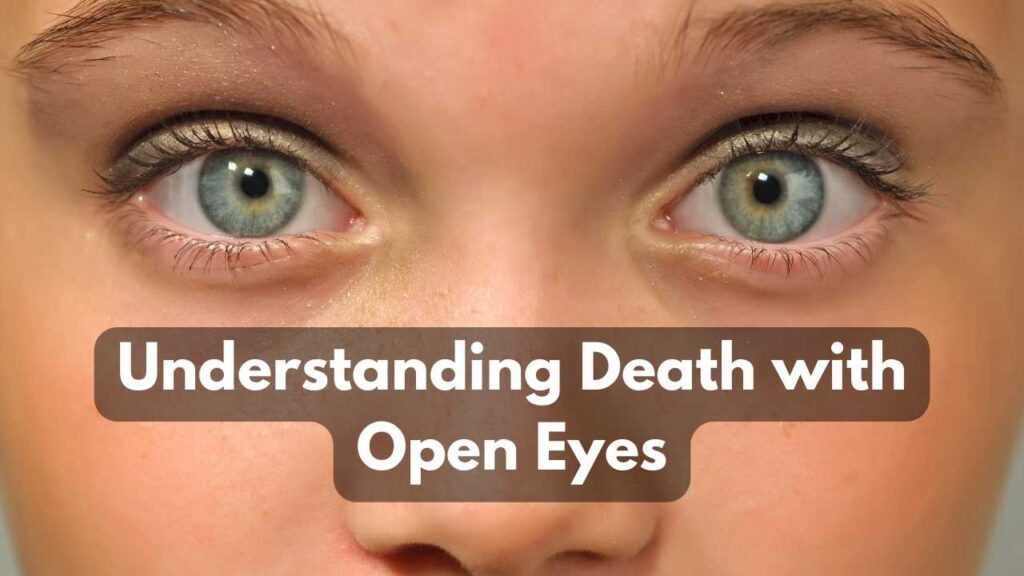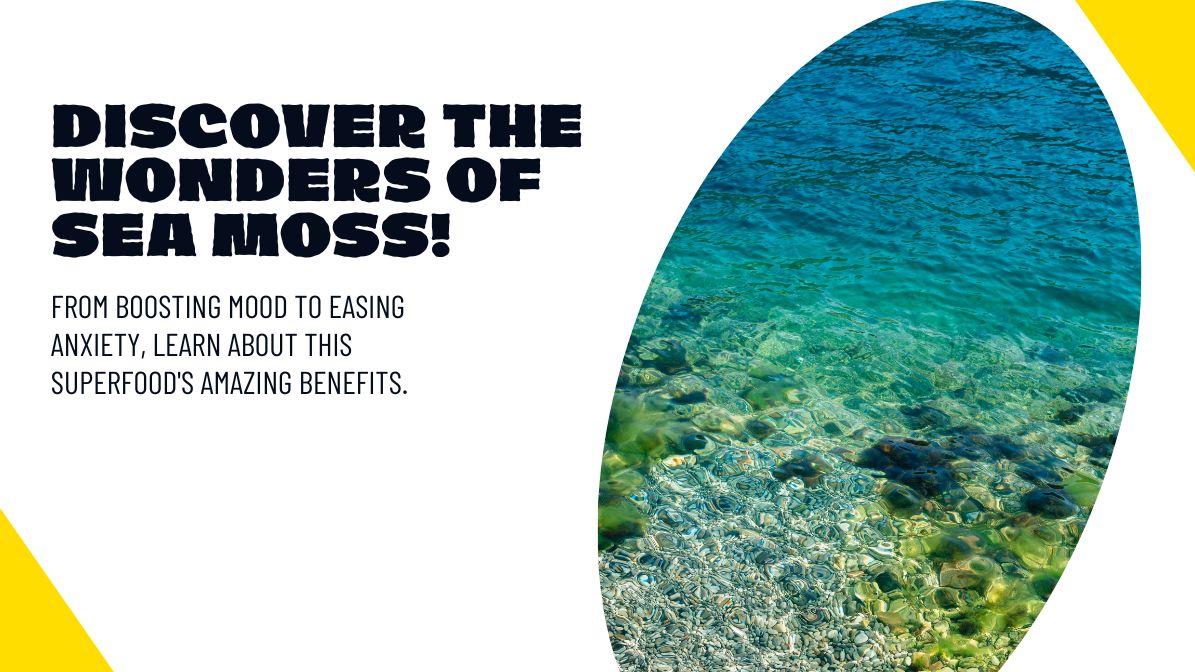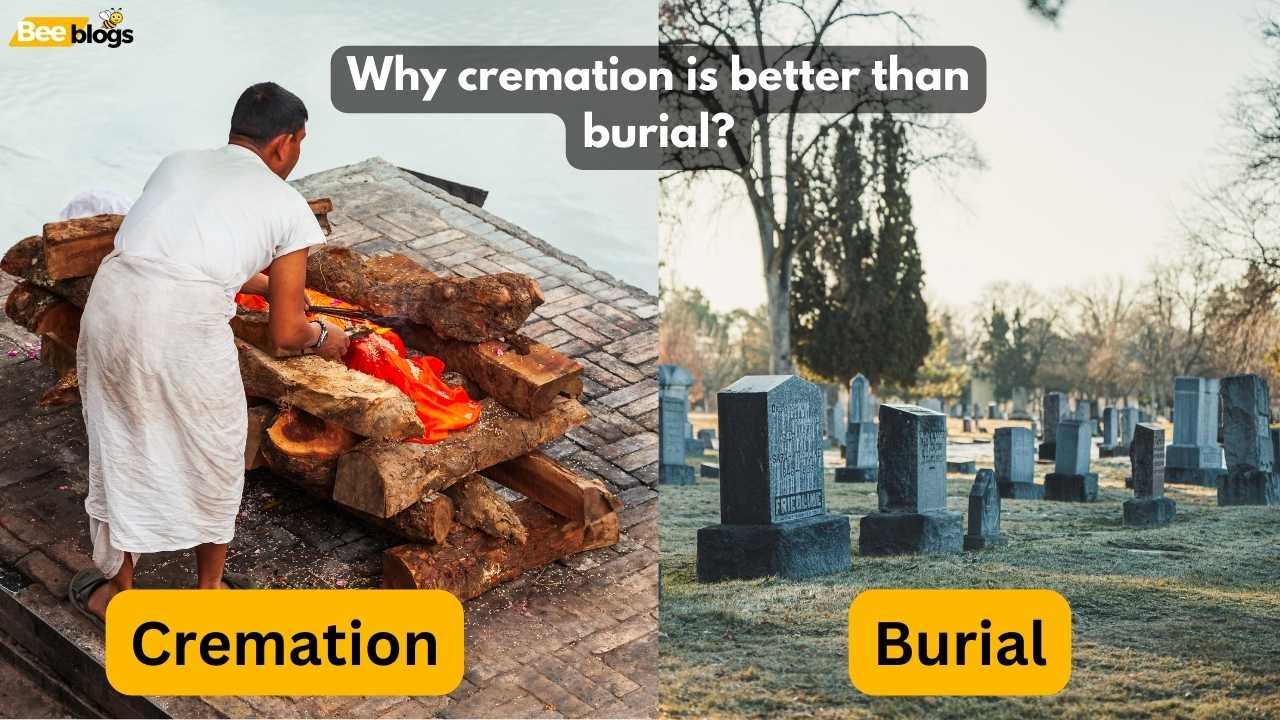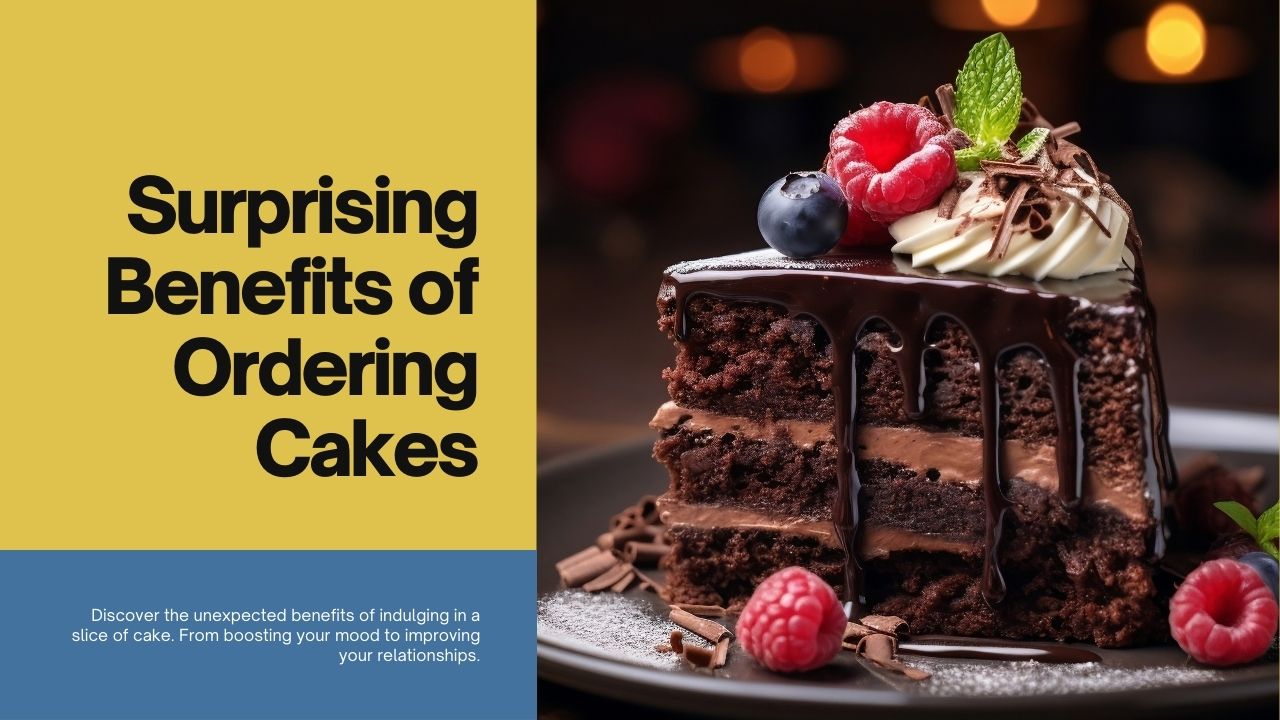Death is a big mystery that everyone experiences. People and cultures understand and handle it differently. This blog will explore “Death with Open Eyes,” helping us understand death in a clear, mindful, and accepting way.
Table of Contents
What Does “Death with Open Eyes” Mean?
“Death with Open Eyes” means accepting and understanding death without fear. It suggests facing death directly and living fully in the present, knowing that death is a natural part of life.
The Philosophy Behind “Death with Open Eyes“
- Mindfulness: Paying attention to right now and knowing that life changes.
- Acceptance: Understanding that death is a natural part of life and not being scared of it.
- Awareness: Realizing that death will happen and it helps give life its meaning.
Historical Perspectives
- Eastern Philosophies: In Buddhism and Hinduism, death is viewed as a change, not an ending. They believe in reincarnation, meaning the soul continues on.
- Western Philosophies: Ancient Greek thinkers like Socrates and Epicurus talked about death as a normal part of life.
The Psychological Impact of Facing Death
Understanding and accepting death can be very good for the mind. It can make you less scared and worried, help you feel better, and make your life better.
Reducing Fear and Anxiety
- Exposure Therapy: Thinking about death and facing fears about it can make them less scary.
- Mindfulness Practices: Meditating and being mindful can help people feel more at ease with the idea of dying.
Enhancing Life Quality
- Living Fully: Knowing we will die can make us live more fully and truly.
- Prioritizing Relationships: Knowing life is short can help us build deeper, more meaningful relationships.
How people feel about death in different cultures.
Cultural perspectives on death vary widely, influencing how people understand and deal with it.
- Denial and Avoidance: In many Western cultures, people don’t like to talk about death.
- Medicalization of Death: Doctors try to keep people alive for as long as possible, even if it means their quality of life gets worse.
- Acceptance and Integration: In many Eastern cultures, death is seen as a normal part of life and is included in daily activities and spiritual practices.
- Rituals and Ceremonies: These are important in helping people understand and deal with death.
Simple Steps to Accept Death Calmly
Accepting death calmly can be challenging, but following these simple steps might help:
- Acknowledge Your Feelings: It’s normal to feel scared or sad about death. Accept these emotions without judgment.
- Educate Yourself: Learn about the natural process of dying. Knowledge can reduce fear and help you understand what to expect.
- Talk About It: Share your thoughts and fears with friends, family, or a counselor. Talking can bring comfort and support.
- Find Meaning: Reflect on your life and what gives it meaning. Engaging in activities that bring joy and fulfilment can provide peace.
- Practice Mindfulness: Stay present and appreciate each moment. Mindfulness can help you focus on the now rather than worrying about the future.
- Seek Spiritual Comfort: If you have spiritual beliefs, turn to them for solace. Prayer, meditation, or rituals can bring comfort and acceptance.
The Importance of End-of-Life Planning
End-of-life planning is important because it helps people make decisions about how they want to be cared for at the end of their lives. It can include things like making a will, choosing a healthcare proxy, and deciding on funeral arrangements. By planning ahead, individuals can ensure their wishes are respected, reduce stress for their loved ones, and avoid confusion during difficult times. Understanding death with open eyes means accepting that it is a natural part of life and preparing for it in a thoughtful and informed way. This can bring peace of mind and help everyone involved feel more prepared and supported.
See also: Why cremation is better than burial?
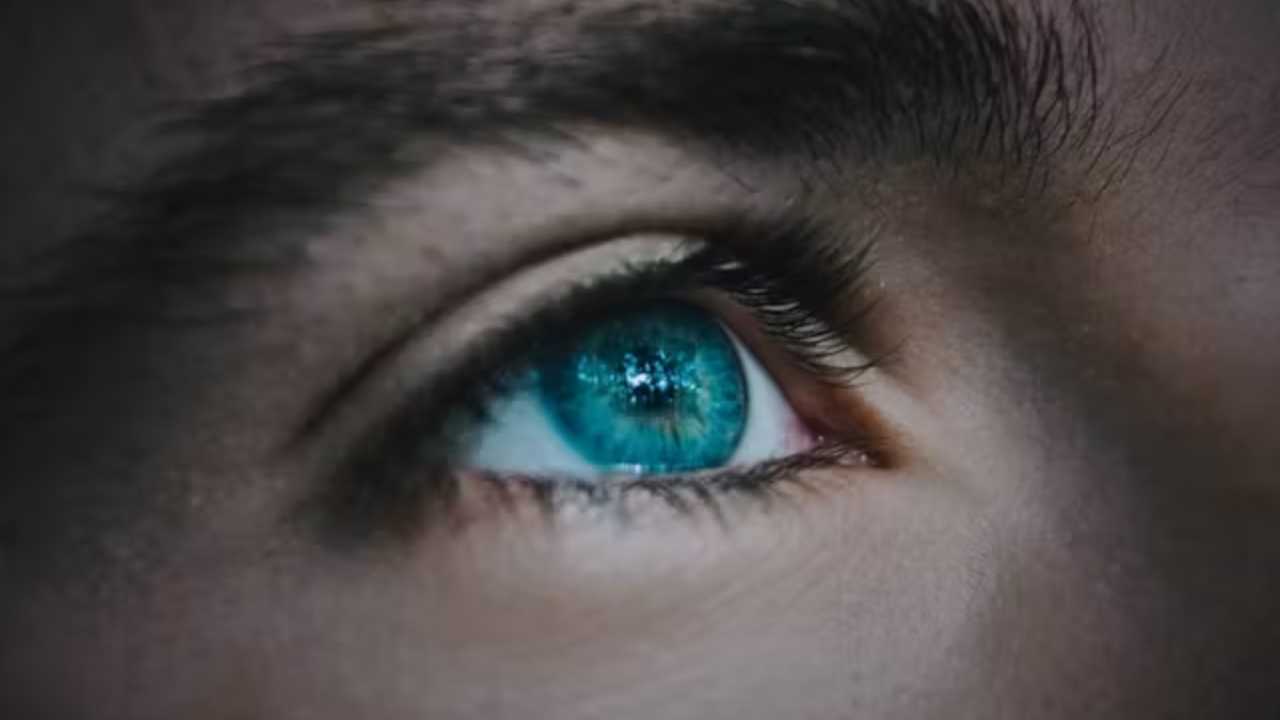
Why Do Eyes Open Before Death?
Losing someone you love is very hard. When they die, little things, like whether their eyes were open or closed, can make family and friends wonder. This article talks about common myths and facts about eyes being open before death.
The old woman’s family felt uneasy because she died with her eyes open, making them wonder about her final moments.
Medical Reasons for Eyes Being Open
There are medical reasons why someone might have their eyes open after they die:
- Rigor Mortis: This makes the body stiff after a few hours, including the eyelids.
- Without blinking, the eyes dry out and shrink, making it hard for the eyelids to close.
- These natural processes can make it seem like the person’s eyes are still open.
- Medical Conditions: Some conditions, like strokes or muscle diseases, can make it hard for the eyes to close.
So, medically speaking, eyes being open at death doesn’t mean the person was scared. It’s often just a normal part of the body stopping.
Myths and Misconceptions
Even though medical science explains this, some myths still exist:
- Seeing Death Coming: Some think open eyes mean the person saw their death coming, but there’s no proof of this.
- Trapped Soul: Some beliefs say a soul can’t leave if the eyes aren’t closed, but there’s no science to back this up.
- Feeling Terror: Some think open eyes mean the person was scared, but it’s usually just normal body changes.
Unless someone saw their dying moments, we can’t know what they were thinking or feeling based only on their open eyes.
What Families Can Do
If a loved one dies with open eyes, families can:
- Close the Eyes: Gently closing the eyelids is common and respectful.
- Use Eye Caps: Funeral homes can provide caps to cover the eyes for a dignified look.
- Explain to Others: Teaching family and friends about the medical reasons can help ease worries.
- Focus on Their Life: Remembering the good times is more important than the details of death.
In the end, whether their eyes are open or closed shouldn’t affect how they are remembered. Letting go of myths helps focus on celebrating their life.
When to Seek Counseling
If finding a loved one with open eyes causes a lot of distress, talking to a counselor can help:
- Medical Facts: Understanding the facts can ease fears.
- Normal Grieving: Distress over this might mean needing help to move past shock and denial.
- Healthy Remembrance: Focusing on the person, not their death.
- Coping Strategies: Like journaling or talking to others.
A counselor can reassure you that open eyes don’t mean anything about their soul or awareness.
Eyes Open Before Death – Common Causes
Finding someone with their eyes open after death can be surprising, but there are normal reasons:
- Nerve Damage: Conditions like strokes can affect the eyelid muscles.
- Muscle Relaxation: As the body shuts down, muscles, including those in the eyelids, relax.
- Lack of Blinking: Without blinking, eyes stay open as life ends.
Other Changes
- Vision Changes: Low oxygen can blur vision.
- Pupil Dilation: Pupils often get bigger as the heart stops.
- Loss of Clarity: Eyes can dull and dry out after death.
- Color Changes: The whites of the eyes can turn yellowish.
- Organ Donation: Eyes can be donated after death.
Conclusion
Finding a loved one with open eyes can be upsetting, but it’s often just a normal body change. While it might raise questions, focusing too much on this can overshadow the important thing—their life. Understanding these facts can help you find closure and remember them for who they were, not the details of their death.
FAQs about “Death with Open Eyes”
What is the purpose of facing death with open eyes?
Facing death with open eyes helps individuals live more fully, reduce fear, and foster a deeper appreciation for life.
How can I become more comfortable with the idea of death?
Educate yourself, reflect on your mortality, and engage in open discussions about death. Mindfulness practices can also be beneficial.
What are the psychological benefits of accepting death?
Accepting death can reduce anxiety, enhance mental well-being, and improve the overall quality of life by encouraging a more authentic and present way of living.
How do different cultures view death?
Western cultures often avoid the topic, while many Eastern cultures integrate death into daily life and spiritual practices. Each culture has unique rituals and beliefs surrounding death.
Why is end-of-life planning important?
End-of-life planning ensures that your wishes are respected and reduces stress for your loved ones. It includes legal preparations, like wills and advance directives, as well as personal preparations.


